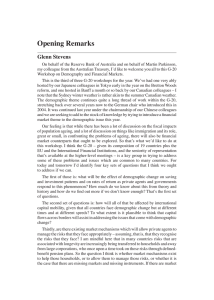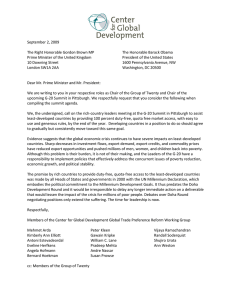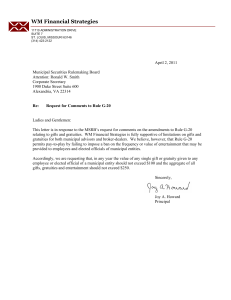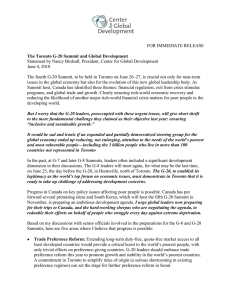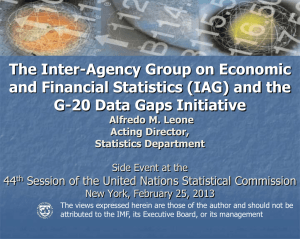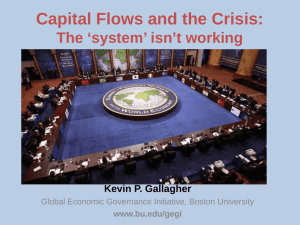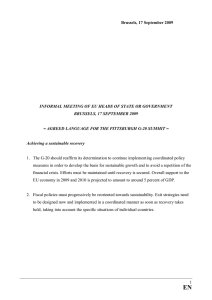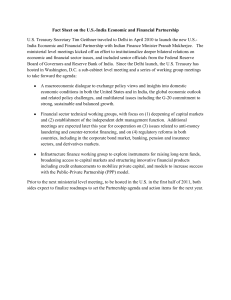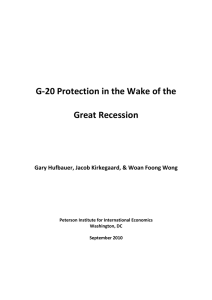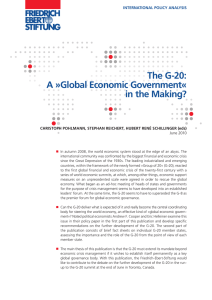IT’S TIME FOR AFRICA’S VOICE IN THE G-20 EZRA SURUMA
advertisement
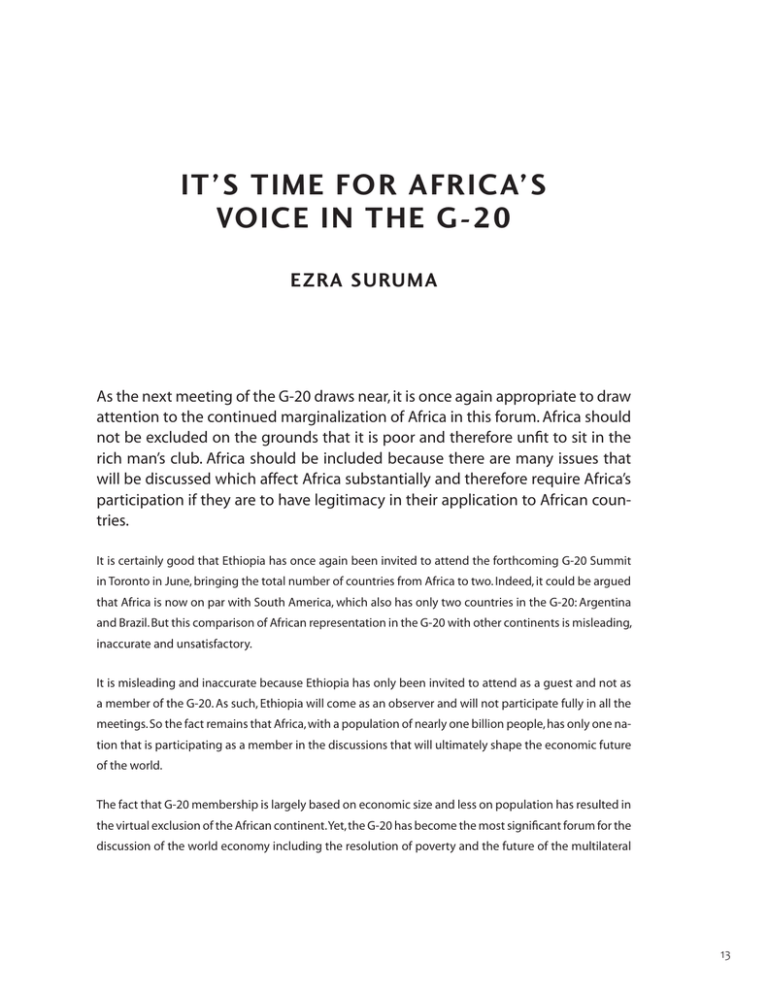
IT’S TIME FOR AFRICA’S VOICE IN THE G-20 EZRA SURUMA As the next meeting of the G-20 draws near, it is once again appropriate to draw attention to the continued marginalization of Africa in this forum. Africa should not be excluded on the grounds that it is poor and therefore unfit to sit in the rich man’s club. Africa should be included because there are many issues that will be discussed which affect Africa substantially and therefore require Africa’s participation if they are to have legitimacy in their application to African countries. It is certainly good that Ethiopia has once again been invited to attend the forthcoming G-20 Summit in Toronto in June, bringing the total number of countries from Africa to two. Indeed, it could be argued that Africa is now on par with South America, which also has only two countries in the G-20: Argentina and Brazil. But this comparison of African representation in the G-20 with other continents is misleading, inaccurate and unsatisfactory. It is misleading and inaccurate because Ethiopia has only been invited to attend as a guest and not as a member of the G-20. As such, Ethiopia will come as an observer and will not participate fully in all the meetings. So the fact remains that Africa, with a population of nearly one billion people, has only one nation that is participating as a member in the discussions that will ultimately shape the economic future of the world. The fact that G-20 membership is largely based on economic size and less on population has resulted in the virtual exclusion of the African continent. Yet, the G-20 has become the most significant forum for the discussion of the world economy including the resolution of poverty and the future of the multilateral 13 14 RECOVERY OR RELAPSE: THE ROLE OF THE G-20 IN THE GLOBAL ECONOMY institutions. The exclusion of Africa means that it will gruence in the participation of Africans in these two not have an opportunity to contribute to the discus- multilateral institutions, which are critical players in the sions on world poverty, aid and trade, which are core economic development of the African economies. economic issues affecting the continent’s future. The G-20 is probably the main forum where this issue Africa’s absence from the G-20 stands in great contrast of African voice in these institutions and in the world to the generous representation of North America, Asia economy as a whole can be substantively resolved. It is and Europe. All the North American countries—Mexi- therefore not appropriate to discuss Africa’s future par- co, the United States and Canada—are members, while ticipation in these institutions when the Africans are Asia and Europe have six members each and the Eu- absent from the forum. As the long-standing struggle ropean Union has an additional membership, which to increase Africa’s voice in the IMF and the World Bank raises Europe’s total representation to seven. Surely continues, it is important that the world is seen to re- there can be little doubt about the bias against Africa’s spond to Africa’s quest for inclusion in the discussion representation in this global forum. of the world’s economic affairs rather than exacerbating its marginalization on the grounds that it is poor. It is particularly noteworthy that currently the 53 African states that are members of the International Mon- While the determination of the best route to follow to etary Fund and the World Bank have only two execu- give Africa a voice will require consultation, one option tive directors who sit on each of the boards of directors is to include another African country such as Ethiopia of those institutions. After a protracted struggle, the or Nigeria as well as the African Union in the G-20. That World Bank has agreed to accord a third chair to the Af- would surely be a step toward a more balanced treat- rican countries. However, the IMF has not agreed to go ment of the one billion people of Africa who are a part along with the World Bank but is instead offering a dif- of the global community but who are currently being ferent accommodation with increased representation treated as though they are aliens on this planet. at a lower level. All this has created considerable incon-
